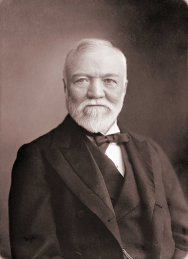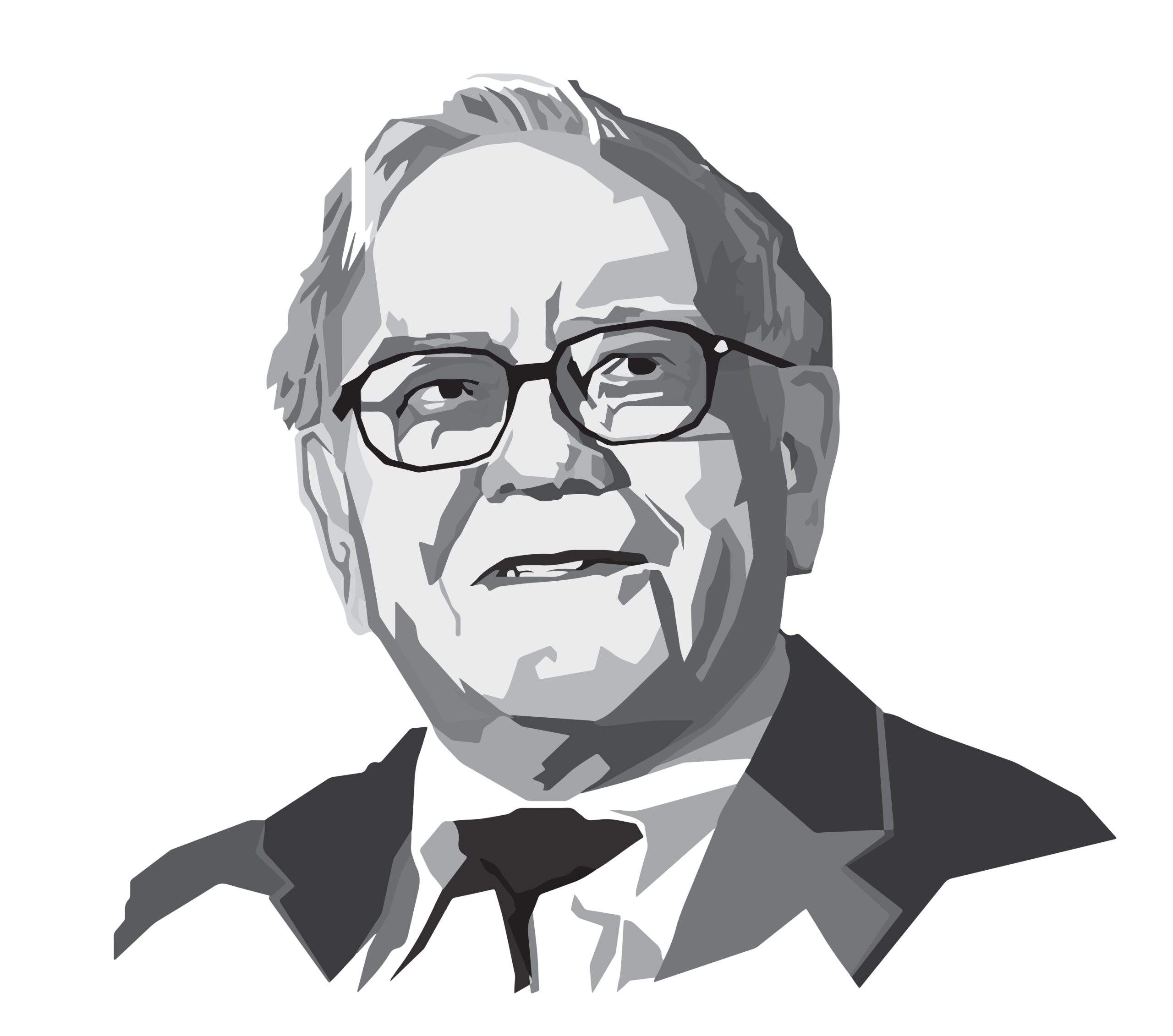If you want to preserve your wealth … diversify.
Spread your money among 20 to 30 stocks or better yet, buy an index fund.
This way, no one stock will sink your portfolio.
But keep in mind, you won’t make outstanding returns.
And the reason is simple: You can’t outperform the index, if you are the index.
Holding that kind of “Noah’s Ark” portfolio … a little of every stock under the sun, is the way to go for most investors.
But … if your primary goal is to GROW your wealth (and not just preserve it) then you should avoid diversification like the plague!
Because that’s simply not how you become wealthy.
Great fortunes weren’t built by holding 50 or more stocks in a portfolio.
They were made by people who identified an outstanding business, and held for the long term.
And that’s not just my view, either.
Some of history’s most successful fortunes were built by concentrating (not diversifying) their money…
A Century of Proof
At the turn of the 20th century, Andrew Carnegie was one of the richest people in the world.
When he was 13 years old, he immigrated to America with his family, without a penny to his name.
Carnegie worked as a “bobbin boy” changing spools of thread in a cotton mill 12 hours a day, 6 days a week in a Pittsburgh cotton factory.
His starting wage was $1.20 per week (worth $41 per week in 2022’s dollars).
From those meager beginnings, Carnegie went on to make a fortune in steel.
And at the time of his death, his net worth was $310 billion (2022 equivalent).
Carnegie was no fan of diversification.
He said that people who scattered their capital have “scattered their brains, also.”
Warren Buffett later echoed the same sentiment, pointing out that: “If you understand the business, you don’t need to own very many of them.”
I myself don’t know too many people that got rich off their 15th best idea, but I do know many that made their fortunes on their very best idea.
And the requirements of maintaining a more concentrated portfolio are pretty minimal…
Concentrated Profits
Owning a concentrated portfolio means knowing something about the business.
That might sound like a basic requirement, but you’d be surprised. Most people have no idea what service or product the company provides! All they know is the ticker.
It’s easy to buy an ETF or an index fund without so much as a second thought.
But if you only own a handful of businesses, you would want to only buy the very best.
And you have to understand the business itself in order to know whether it has an advantage over the competition.
The second requirement of a concentrated portfolio is that you focus on long-term prospects.
Truly great businesses adapt and evolve to meet changing market conditions. The best companies consistently rise to meet opportunity and make the most out of it.
The final requirement is that you ONLY buy at an attractive price.
The price you pay determines the return on your money. Pay a high price, and your returns will be low. Pay a low price and your returns will be high.
Even a great business bought at a high price will produce a terrible return.
Listen to Charlie
Warren Buffett’s Vice Chairman, Charlie Munger, built his own vast wealth with a portfolio consisting almost entirely of just three investments.
According to Munger: “The idea that very smart people with investment skills should have hugely diversified portfolios is madness.”
Because if you can identify a few great businesses, buy them at an attractive price and then sit on your butt … it’s pretty hard not to make money.
Right now Main Street investors have the opportunity to build their own fortune with just a handful of the best businesses.
Because the next generation of big companies is just beginning to surge.
This same class of stocks has delivered some of the largest long-term gains of the decade.
And now, history is set to repeat itself.
You’ll only need a few of these “Super Stocks” to transform your portfolio and turbocharge your returns … and you can get started right here.
Regards,

Founder, Alpha Investor

Reject Retirement. AKA: Warren Buffet’s Most Valuable Lesson
I just got back from my first real vacation in years. It was fantastic … completely exhausting … and absolutely necessary.
But as I was sitting in a Paris café enjoying a coffee, I thought for a minute how nice it might be to be retired. To be able to waste away in a Paris café every day.
And then I quickly dismissed the thought. After about a week, I know I’d get bored and my brain would turn to mush.
The data backs this up. A recent paper in the American Geriatrics Society journal tracks the progress of a sample of retirees over a 10-year period. Perhaps not surprisingly, there was a measurable decline in people’s cognitive function immediately following retirement: in verbal fluency, memory and global function.
But the deeper you dig into the numbers, the more it gets interesting. The effects were twice as severe in men compared to women. This decline was also worse for both men and women who attended college compared to those that did not.
It seems that without the stimulus and sense of purpose of a job, our minds really do go into decline … and it’s worse for men.
So for the gentlemen out there: You want to live a long and fulfilling life and keep your mental faculties sharp for as long as possible.
Don’t retire. Die with your boots on.
Warren Buffett: 92 and Still Buffetting
Consider the GOAT himself, the Oracle of Omaha, Warren Buffett. He’s 92 years old and still as sharp as a tack. Sure, he probably doesn’t keep the hours he did in his 40s, but he still suits up and goes to the office every day.
Buffett has been reported to read 600 to 1,000 pages of material every single workday. I’d be surprised if he still keeps that pace at 92, but he still claims to spend 80% of his day reading.
That goes a long way to explaining why Buffett has managed to stave off cognitive decline. He works his brain like an extreme bodybuilder.
And by the way, Buffett is a veritable spring chicken compared to his longtime vice chairman Charlie Munger. Mr. Munger will be turning 100 in January.
However, there is a difference between working hard and being a workaholic. Working hard helps to keep your mind sharp.
Being a workaholic will wear you down and burn you out.
You need to respect your weekends, and yes, take the occasional vacation to refresh yourself. And you need hobbies to take your mind off work. Buffett is a hell of a bridge player who also plays the ukulele.
But if you want to live long and stay sharp, it really does come back to work. Find a job you love, stick with it and push off retirement as long as you possibly can.
Regards, Charles SizemoreChief Editor, The Banyan Edge
Charles SizemoreChief Editor, The Banyan Edge







